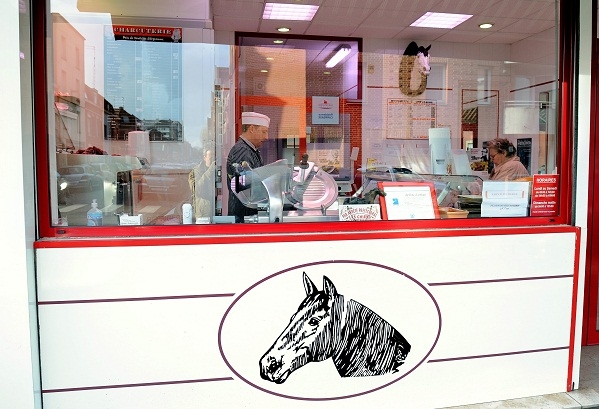The ongoing horsemeat scandal has opened up a hugely complicated web stretching across the EU, highlighting the difficulty of tracing the origins of the meat on sale in this country. Even now, almost a month after it was announced that horse could be in beef products, no one is entirely sure of how the horses entered the food chain. There are other big questions, too: here are four that need answers:
• The matter of dodgy horse passports – which I wrote about last month – is something that still hasn’t been fully investigated. It has now emerged that up to 7,000 unauthorised passports have been in circulation in the UK since 2008, highlighting the chaotic state of the passport system. (The story of Charlie the ‘ghost’ cob, who according to official documents was slaughtered in 2012, but who was in fact discovered wandering the streets in Ireland, shows just one example of the problems with the current system).
• It might well be true that a human would have to eat 500 burgers to receive an equivalent human dose of bute. But bute isn’t the only drug that these horses could have been treated with. Magnesium-based horse calmers have become very popular in recent years, an excess of which could also cause problems in humans, including low blood pressure. Plus, details of these wouldn’t appear on a horse’s passport, meaning that the animal could theoretically still enter the food chain.
• How has this taken so long to discover? If this is indeed an ‘international criminal conspiracy’, (© Owen Paterson), then there must have been hundreds – if not thousands – of people ‘in’ on the fraud. A number of British abattoirs have now been found to have supplied horse meat which has ended up in the food chain one way or another.
• Are the horses even from Europe? So far the story has focused on Europe as a source of the rogue meat. But if, as James Forsyth writes in his politics column, it turns out to be true that some of the horsemeat in supermarket mince has its origins in the US, then there’s a far greater risk of these horses being drugged that their European counterparts, since the US drug rules are far more lax than those on this side of the pond.
Even if, as the FSA would like us to believe, the horsemeat in the food chain is perfectly edible, it seems unlikely that supermarkets will be able to get away without any repercussions from their customers. Perhaps Rod Liddle has got a point when he says that customers will soon be asking for compensation for having been sold mislabelled products. For the moment though, that’s probably the least of their worries.
In the meantime however, if you do fancy an (edible) spot of horse, then steer clear of the Findus lasagne or Beefeater burger, and take some tips from Bruce Anderson, who’s a big fan of saucisson de cheval.







Comments